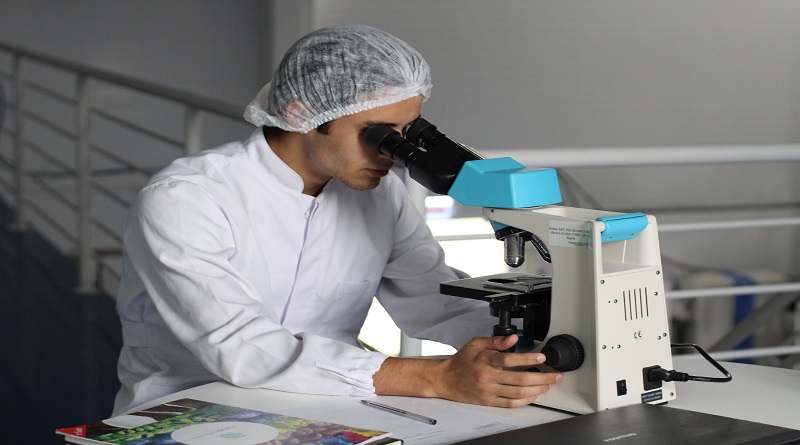Do you have an interest in living things, life and all things that come with that? Do you have an analytical mind? Are you inquisitive and want to delve into the world of biomedical and biological science? These are just a few of the important qualities needed to study and work in this area.
What is Biological and Biomedical Sciences?
Biological science studies living organisms, life and life cycles as well as adaptations and environment. Biomedical sciences is the study of life science subjects in relation to human health and disease.
What third level courses are available?
Universities and colleges in Ireland are offering courses in the following subject areas:
- Biological and Biomedical Sciences – TCD, Maynooth University
Related:
- Biological and Chemical Sciences – UCC, UL
- Biological and Geographical Sciences – Maynooth University
- Biological Sciences – DCU
- Biological, Earth and Environmental Sciences – UCC
Studying Biological and Biomedical Sciences in college
There are a number of courses available in this area, including related courses in other areas that are studies with biological sciences as seen from the course list above. There are two main courses available in Biological and Biomedical Sciences available in Ireland. They are both undergraduate courses that are four years in length. All courses will give you the relevant skills and knowledge to work in this area.
Throughout your degree you will learn what is involved in the application of biomedical science to medical and clinical use as well as life, life cycles and how they evolve. You will learn how to use analytical and technical procedures to monitor and improve human health and to help investigate disease. You will make observations, ask in depth questions and carry out research as well as applying your knowledge practically through laboratory sessions.
Your first year of your degree will act as a foundation year. You will gain a strong foundation in relevant areas as well as become familiar with what is to come throughout your course in the coming years. Modules you can choose from may include Biological Control, Bioinformatics, Immunology, Medical Mycology, Molecular Genetics and Plant Biotechnology. You might also cover Immunology and Protein Chemistry.
Throughout your following three years you will hit on many different areas and become familiar with areas such as Biology and Biological Science, Mathematics, Chemistry, Computer Science and other related modules. You may be given the choice of choosing whatever modules interest you most, depending on where you study.
The above information is based on the Biological and Biomedical Sciences course offered by Maynooth University. Courses may differ in their exact content and course layout.
Career Options
Following on from your degree you can work as a biomedical scientist and biological scientist. Detailed job descriptions are below. You will work between laboratories and offices and may find employment in places such as pharmaceutical manufacturers, clinical pathology laboratories within HSE hospitals and maybe private hospitals among others.
Some people may continue their studies at postgraduate level to specialise in a particular area of your interest. Postgraduate courses are often desired in the science area. After gaining experience you may move into the research and education side of biomedical and biological sciences.
Skills and qualities important for studying and working in this area include excellent time management skills, excellent research skills, a genuine interest in the area, good communication skills, good interpersonal skills, the ability to work well under pressure, analytical skills, organisation skills, the ability to work well with others, strong presentation and written skills as well as paying attention to detail and being a critical thinker.
Related Jobs
- Biomedical scientist
- Biological scientist
- Biomedical researcher
- Pharmaceuticals
- Biomedical Engineer
- Medicine
- Biotechnology
- Clinical scientist
- Analytical Chemist
- Biotechnologist
Further Study
Visit postgrad.ie for more information.
FAQ
Different courses and different colleges will have different entry requirements. It’s always safest to check with the individual higher education institution which is available on their websites. As a general rule Leaving Cert students should have a minimum of six subjects which should
include: Two H5 (Higher Level) grades and Four O6 (Ordinary Level) grades or four H7 (Higher Level) grades. Subjects must include Mathematics, Irish or another language, and English.
Certain QQI Awards in a relevant area may also be accepted. These change from course to course so be sure to research further.
The highest points needed for a course in Biological and Biomedical Sciences was 543 points to study in Trinity College Dublin last year. The lowest number of points needed was 498 points. Other courses related to this area all ranged from 400-550 points in 2020.
Where can I study?
You can explore your options here.
Did you know?
- There are thought to be about 3 billion base pairs in the human genome
- Biomedical engineers design and create artificial organs
- There are approximately 23,000 genes in the human genome.
Resources












Comments